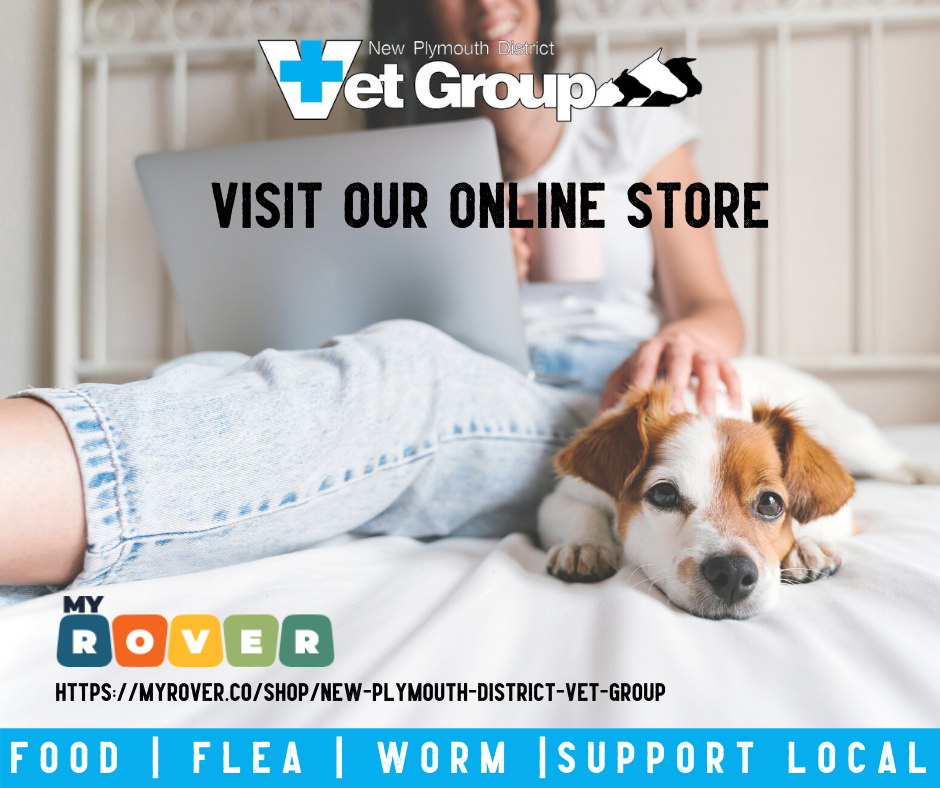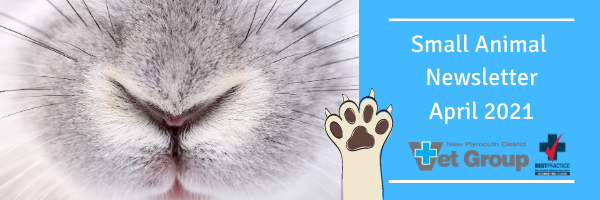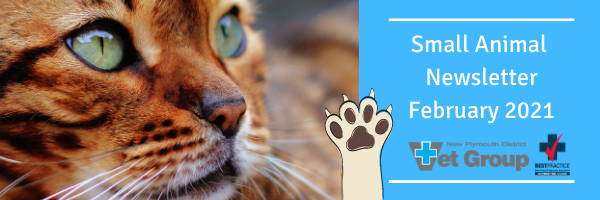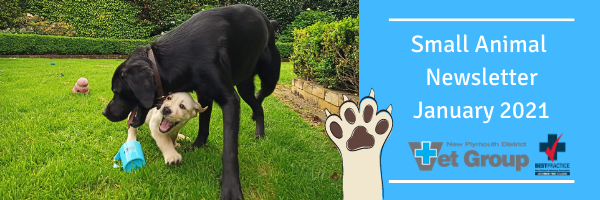We now offer Low Level Laser Therapy (LLLT also known as Photobiomodulation) Recently, we started offering…
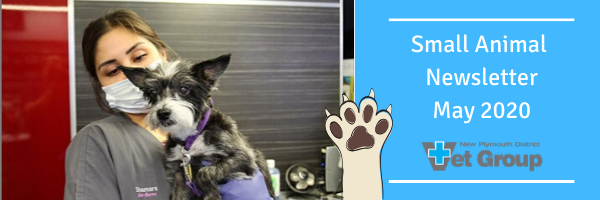
Small Animal Newsletter – May 2020
Moving to Level 2

On Thursday 14th May the clinic moves to Level 2. Our essential workers have been working extremely hard over the last 7 weeks since going into lockdown. We experienced a large volume of phone calls over this period, and we did our best to answer them. We have had to change the way we do things to keep everyone safe.
Moving forward, our clinic will be open to the public again. Our staffing will resume to their usual rosters, and social distancing between clients and staff will remain.
We are able to make bookings; however, we do have a large backlog of surgery cases to get through so please be patient with us when booking routine surgeries – we can assure you we are doing our best to accommodate everyone.
Consultations will resume with social distancing rules in place and will be limited to one adult per consultation. If you are feeling unwell, please do not visit the clinic – please arrange for someone else to bring in your pet.
Farm calls will also resume as usual.
Keeping safe, keeping our distance and washing our hands is now the ‘new’ normal.
Take care everyone.
Prescription Medicines
As of January 2020, legislation has been updated determining the length of time medications 
- six months for registered veterinary medicines and prescription medicines
- four months for critically important antibiotics
Essentially this means that we are not allowed to dispense repeat medications if we haven’t seen your pet in the last six months and only three months’ supply of medication is able to be dispensed at a time. These rules are designed to ensure the safety of pets and the public. If you aren’t sure how this might affect your pet, please have a chat with your vet.
Just a reminder you can order your repeat prescription via our website https://www.npvet.co.nz/repeat-prescription-request-form/ by completing our request form.
Care of a pregnant guinea pig
Whether you have purposely put your guinea pig sow with a boar (male), or whether you have noticed your sow becoming very pearshaped lately, her care will be the same. Guinea pig females (sows) generally give birth and care for young very quickly, provided they are in good health and well-fed themselves.
The pregnancy of guinea pigs lasts 63 to 70 days, larger litters having a shorter gestation, and at the end of pregnancy, the sow will often have become alarmingly large! The first consideration is to provide separate housing for the boar because although he can safely be left with the sow 
In most cases, you will check your sow one day and find that she has regained a svelte shape, and has two, three or even more perfect miniature guinea pigs with her. Now you must feed her three times as much because the piglets will begin to eat solid food at 2 to 3 days old. Although the sow has only two teats, she will feed several piglets quite happily as long as she herself is well fed.
Care of Guinea Piglets
While a sow has a litter of piglets, she should be given as broad a range of her usual foods as possible. This is because the piglets “learn” what is “good food” and what isn’t, in the first two weeks or so of life, from nibbling with the sow. If only one or two foods are offered, the piglets may be very reluctant to eat unfamiliar foods when they go to a new home, and may starve themselves. If the sow and her family eat all the food that is given them, then give more next time. Any food that is broken or dirty will not be eaten, and should be removed and replaced with fresh. As a general guide, you should feed ad-lib guinea pig pellets and water, and a handful of grass, fruit or veggies per guinea pig, per day. The piglets can be weighed in a small kitchen type scales to make sure they are gaining weight satisfactorily. They will typically be around 100gm at birth and should gain weight steadily.
The piglets can be weaned at three to four weeks old, or when they weigh 250gm. If there is a large litter, the males should be weaned first, into a separate cage, and then the females 2 to 3 days later. This avoids the risk of an udder infection if the sow has been producing lots of milk. Male piglets must be separated by four weeks old or breeding between littermates may occur.
When it’s time to say goodbye

It covers some of our frequently asked questions and about what happens after a beloved pet is put to sleep.
Coping with the decision to say goodbye to your pet is one of the toughest you’ll ever make. Your pet has provided you with unconditional love, companionship and comfort so it is normal to find the decision-making process very difficult and heartfelt.
New Plymouth Vet Group’s team of passionate and caring vets and nurses are here to guide you through the medical and ‘quality of life’ aspects of your pet’s condition. We understand that this cannot ease the pain of loss but helping you make an informed decision will help with any self-doubt that may arise afterwards.
We are always available should you need to discuss this difficult decision.
Rescued ‘Virgil’ finds happiness during his 9th life
From time to time, we have stray animals that end up at the clinic for various 
Staff Showcase
Veterinarian – Nicola Carroll

Instagram superstar
Meet Miss Penelope (aka Nellie) – such a gorgeous puppy.
Have you checked out our Instagram page yet? Updated daily – Meet our pet visitors and patients! Click here!
Disclaimer: This newsletter contains comments of a general nature only and is not intended to be a substitute for professional veterinary advice.

